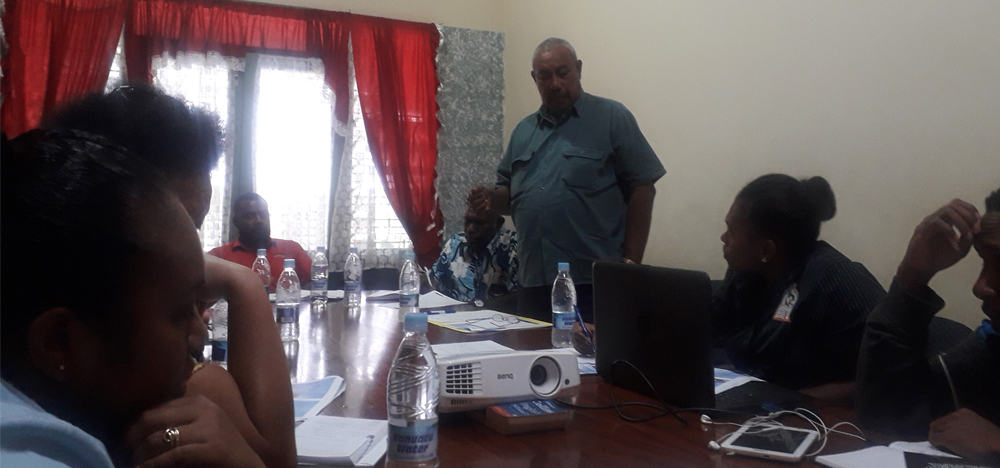The Transport & Logistics Skills Council comprises 7 subsectors with its industry representatives as follows:
- Logistics and Warehouse, represented by Tony Ryan – Vanuatu Agencies
- Maritime, represented by Markon Batie – Ministry of Infrastructure
- Aviation, represented by Toara Karie – Belair Airways
- Road Transport, represented by Reginald Tabigerian – Public Land Transport Authority
- Ports & Harbour, represented by John Nasak – Department of Ports
- Automotive Engineering, represented by Samson Toara – Asco Motors
- Civil construction, represented by Harold Qualao – Qualao Consulting Ltd
As a result, it turned out that Mr Ryan, representing the sector of Logistics and Warehouse, presented the following training needs in his sector: basic customs work skills, including bills and procedures, freight forking, customs brokers, storage and warehousing, and many more.
According to Mr Batie, the Vanuatu Maritime College provides seafarer courses throughout the year but the VQA cannot issue any maritime certificates to students who successfully pursue a seafarer or maritime administration career, due to the International Maritime Organisation Conventions provisions as covered in CAO 53 and CAP 131.
Mr Karie explained that the main needs that they identified so far in the aviation sector is safety management system (SMS) and engineering maintenance. He also stated that an internal training program for a period of six to twelve months were instilled in existing aviation companies in Vanuatu.
Mr Samson Toara, insisted his presentation that the training provided by the Vanuatu Institute of Technology (VIT) on Automotive Engineering was outdated and needed to be reviewed. He further explained that programs have to cater for the actual industry skills needs as technology is continuously evolving.
Mr Qualao stated there training of contractors is a must and needs to be run by the Public Works and Civil engineers.
At the end of each presentations, the chairman informed the members that Industry Experts Panels (IEP) will be formed to review the units that are in existing training packages including: Automotive Engineering, and Civil Engineering.

